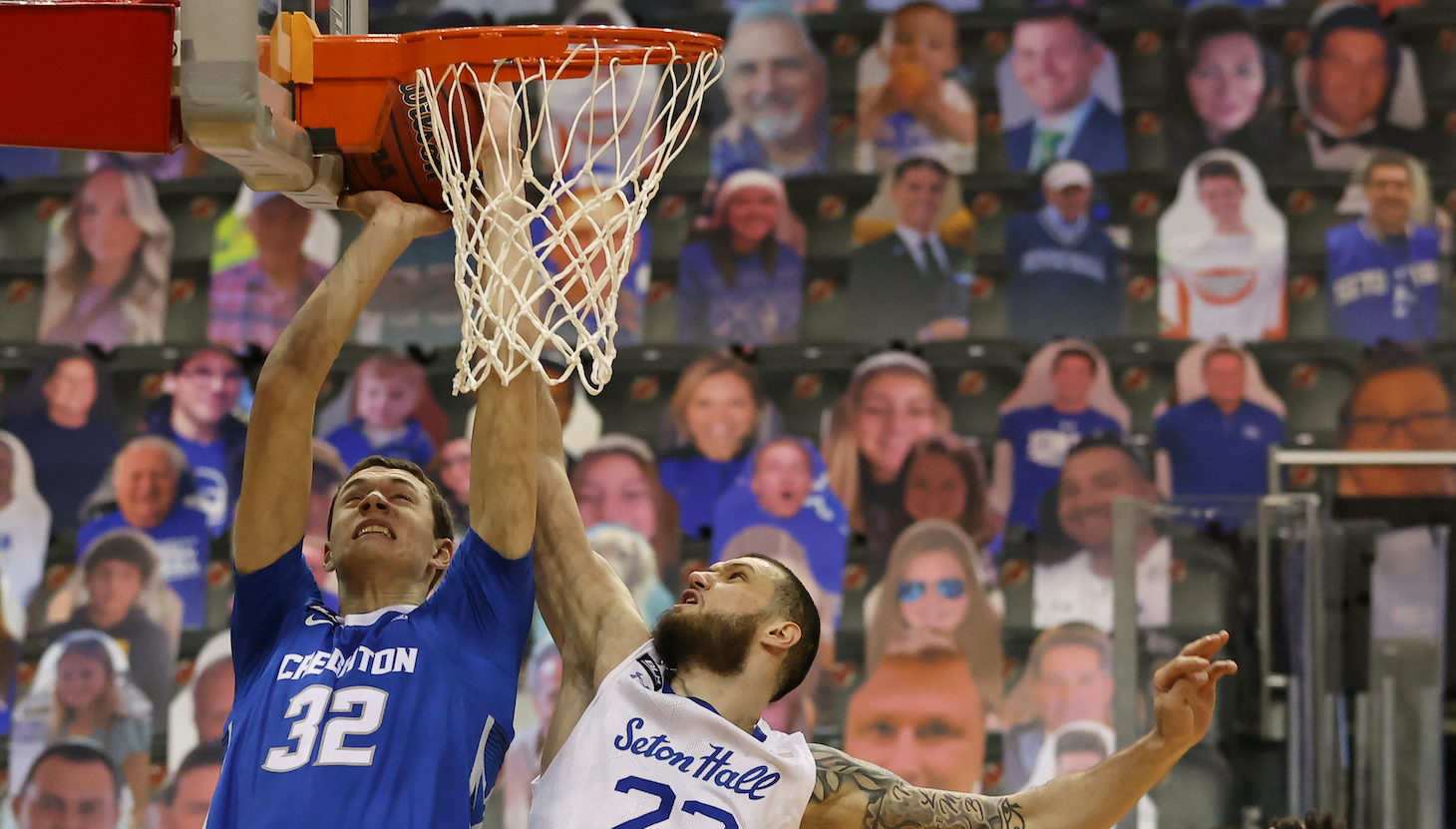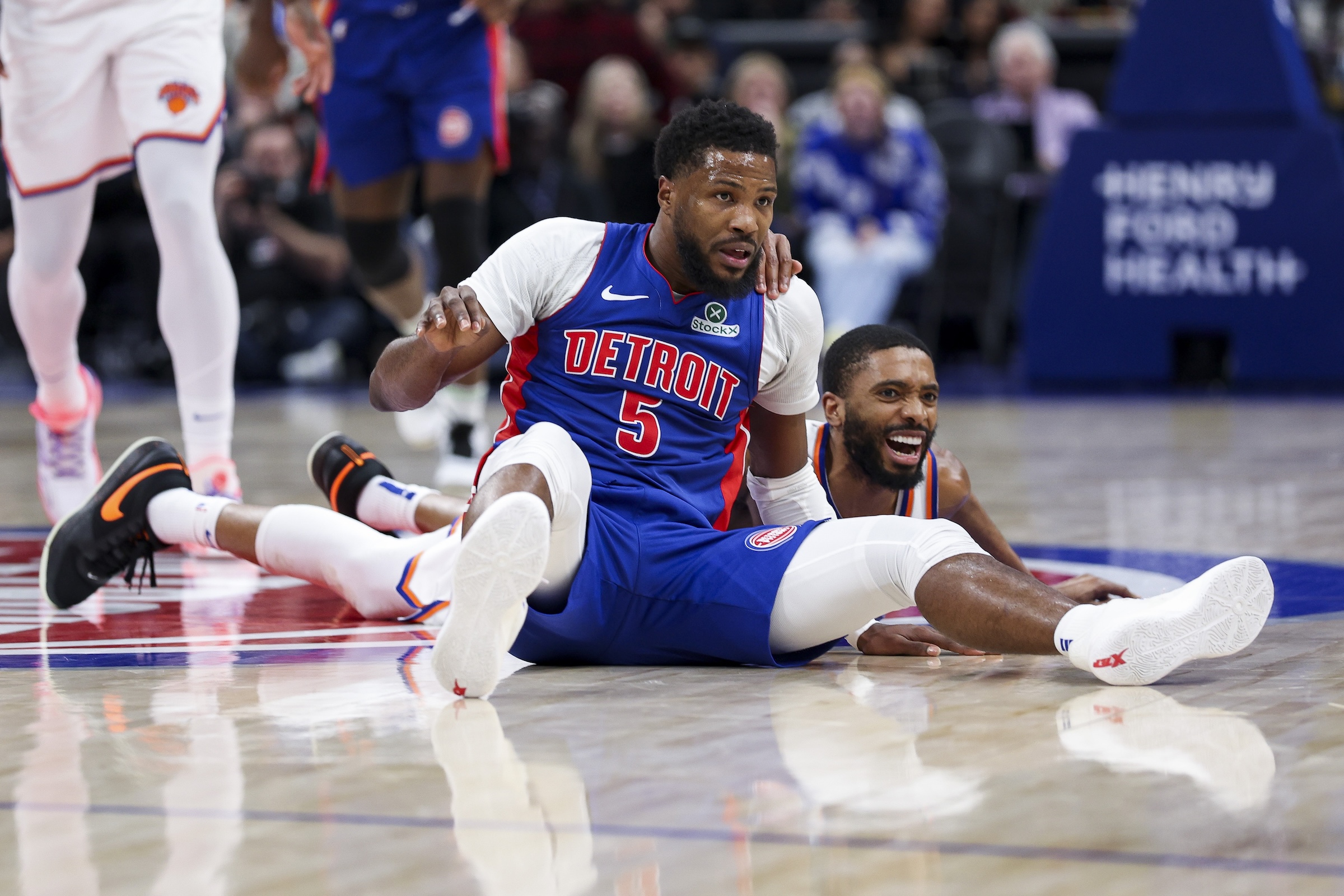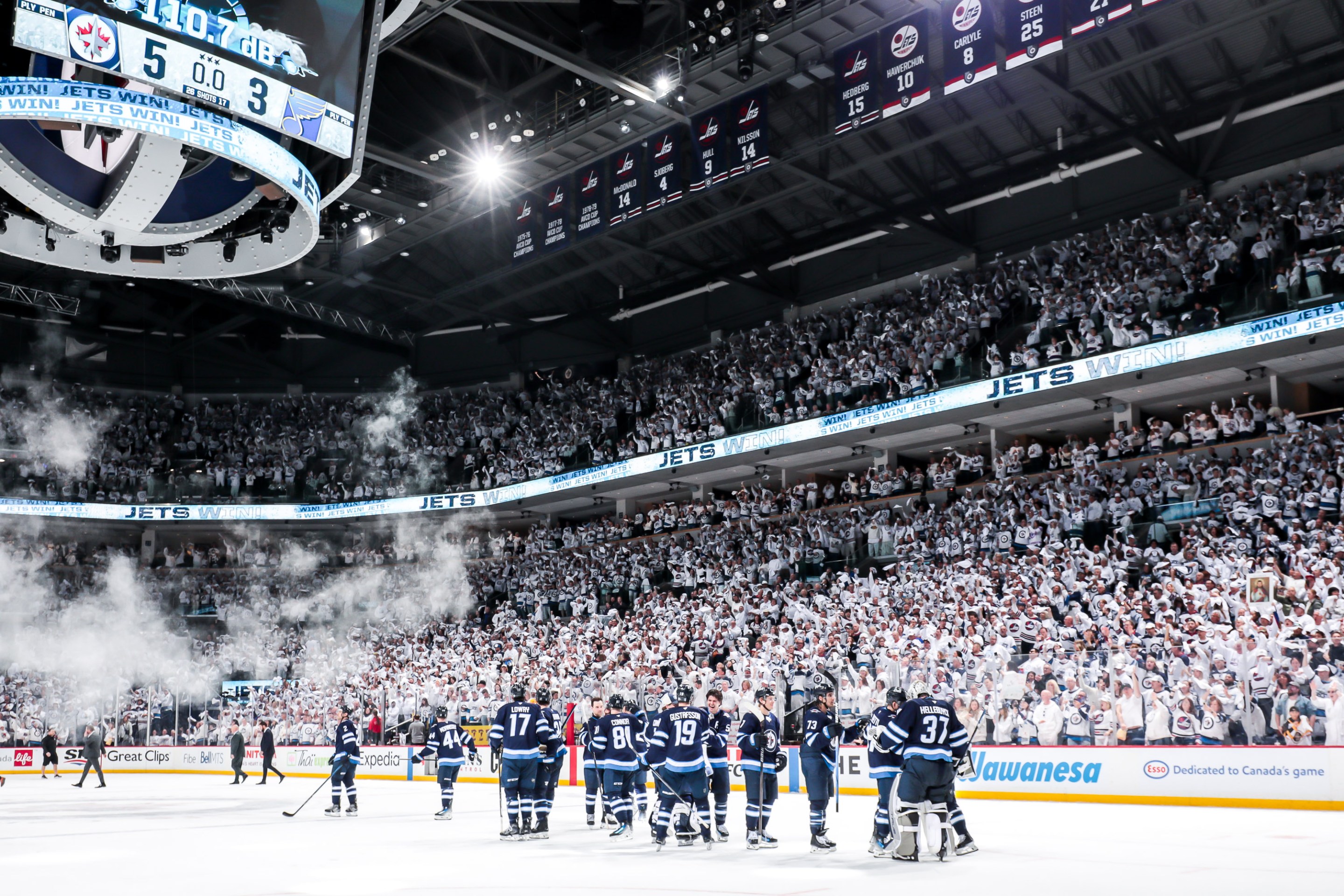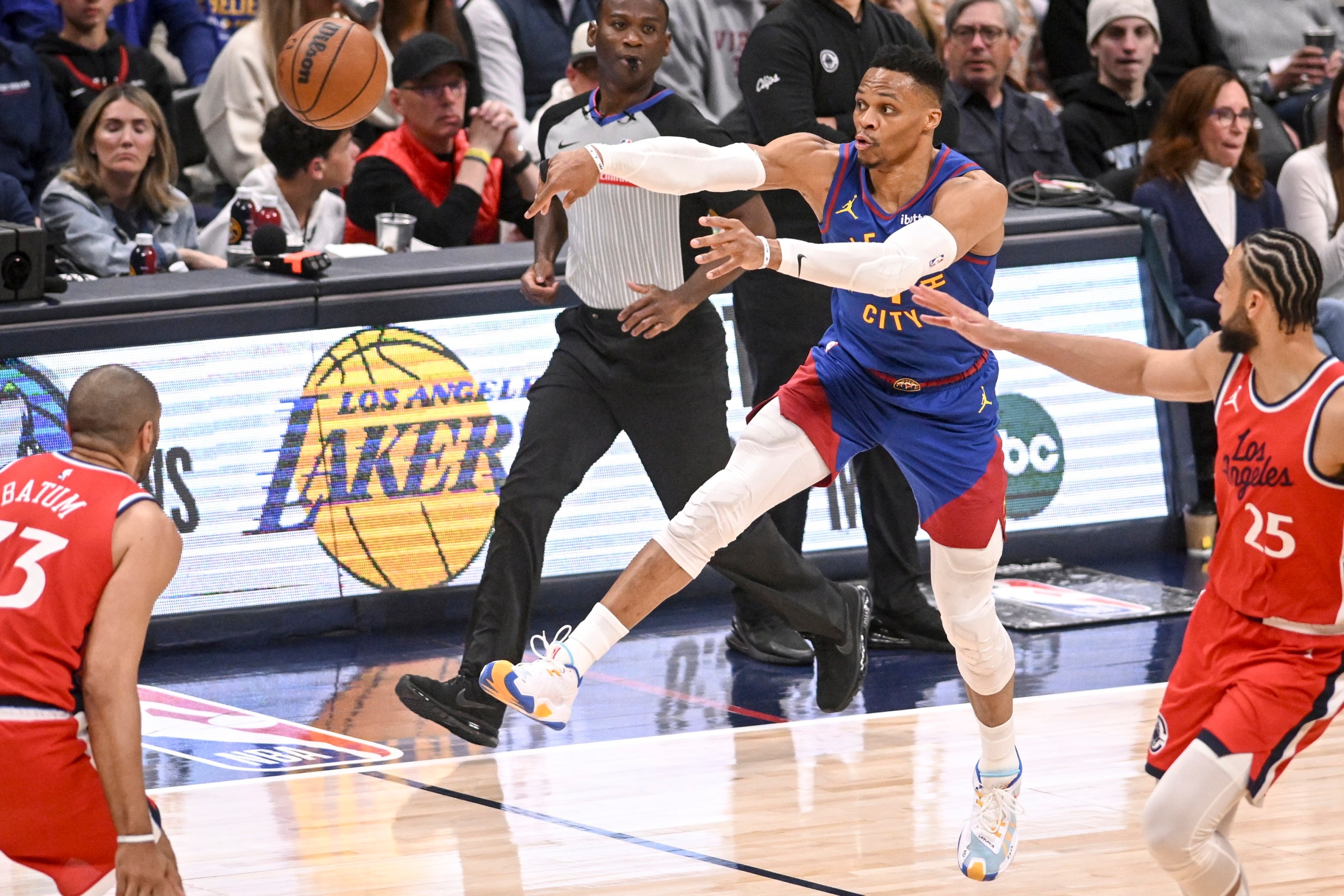This may be the most passive-aggressive way of announcing a team reaching the NCAA Men's Basketball tournament ever, but it is very much in keeping with the entire enterprise this year. The Drexel Dragons just did something they haven't done in a quarter-century, winning their conference tournament and advancing to the Big'Un, and the announcement sort of half-suggests that it's being viewed as the kind of thing you could let slip your mind. You know, like leaving your keys at a bar, your pants at a bar, or in the case of at least one recent British prime minister, your eight-year-old child at a bar.
Yes, Selection Sunday is nearly upon us, and it has never seemed less noteworthy. It used to be the inspiration to slap together a guys' hedonism-and-steaks weekend in Vegas, playing golf, drinking nonstop, and betting games in which you don't know any of the names of players or coaches on either team. We presume and indeed fervently hope that women have done this as well, because research shows us that women golf, drink, and gamble too, and that Vegas hotels will take their money just as happily as they would men’s.
But this year’s edition has sort of snuck up on everyone because college basketball seems more extravagance than extravaganza, a thing to do half-heartedly while we tried to figure out how not to die, get sick, become unemployed, burn the house down by forgetting to turn off the oven from all that psychotic baking, or face four more years of President Turniphead and his Screw It I Stole All I Could In The Allotted Time party. Other than the crystalline allure of the bracket itself, the NCAA Tournament has been the lowest of afterthoughts in America's Calendar Of Big Events. We just haven't had any time for Drexel. Or for that matter, Gonzaga.
Put another way, after a year of being prohibitive underdogs against repeated national shitstorms, how can we be expected to emit much care for mere double-digit underdogs like Colgate, Grand Canyon, or Oral Roberts?
The tournament has long been America's MegaSpring Break: pretending to care about things you don't care about the other 49 weeks of the year, all in the name of alcoholic frolic. Wrapped in that bourbon-hazed narrative was the illusory glorification of the underdog and its chance to hit it big, like 2018 when UMBC (the only 16-seed ever to topple a No. 1), and Texas Southern (15-19) both won games in the same tournament as Loyola-Chicago, which nearly won the damned thing powered mostly by an elderly nun.
It’s also a sucker's game for that sort of thing because the tournament is actually all about that chalk, all the way down to the last few at-large selections, which always seem to gravitate to the same five big-money conferences. Big College Ball would cheerfully spin tales of the 23 14-seeds who have won games against their betters but gloss over the 142 that didn't. You know, the institutional glorification of the 7-1 shot that’s back home and in bed by Friday night.
Even if you think, though, that this is too bleak (what, me, bleak?), let's check over with ESPN, where John Gasaway just listed for us the 349 schools that definitely won't win the tournament, an interesting way to sell that anyone-can-win hope narrative by pointing out that almost nobody can.
Astride it sits the annual I-Can-Fix-This primer from Jay Bilas, who would totally run off with the tournament and shack up with it in a beachfront cottage if his wife weren’t such a stickler for fidelity. Bilas's grand plan is always a version of Charming Underdog, My Ass, in which he promotes the idea of selecting the 68 best teams regardless of conference or the results of their postseason tournaments by suggesting that the 68 teams should be determined before the conference tournaments are even played. This plan, which by its nature is gravitationally heavy on name-brand schools, would render those tournaments valueless except as the naked cash grabs they are by reducing them to tools for seeding by the unkempt pile of wet, blighted cordwood we call the selection committee.
Mostly, though, the glorification of the tournament is about the real icon of American sport, the crucifix necklace charm of our games: the bracket. It's iconic shape and symmetry, with the embodiment of ridiculous dreams baked into it for all, from the soul-devouring CEO to the goat in human form working the mailroom, all of whom have been peer-shamed into throwing a tenner into the pot for the right to scrawl Prairie View once and Iowa six times onto a piece of graph paper. And more often than not, the winner was the goat.
But now? The CEO is too busy with layoffs to fill out a bracket for the person running the pool who has just been fired by Zoom call. People have a lot less disposable yang for frivolities like Villanova. The most important metric in America isn't RPI, it's vaccine distribution. And even the illusion that America desperately needs distractions like the tournament is being exposed, as the crashing ratings figures for every big televised sporting event in the last twelvemonth scream, "The hell they do." The last one, the NBA All-Star Game, had the lowest ratings since people started measuring rapid eye movements in the early '60s.
And then there's this year's bracket names, Hinkle 1 and 2 for the storied Butler fieldhouse where half the field will play, and Bankers Life 1 and 2 for the not-nearly-so-storied home of the Pacers, because the tournament is being played entirely in Indianapolis for COVID and convenience reasons. As evocative tools, these are the equivalent of naming everything Bezos, or Google, another room-temperature reminder that the most national of sporting events has been downsized to resemble the Indiana High School Tournament. Hell, with five minutes’ work, they could have named the four regionals for actual people rather than construction projects.
Maybe they could have taken Indiana's finest players, Oscar Robertson, Larry Bird, George McGinnis, and Don Schlundt, who we included only for the mellifluous surname. Hey, if you’re prepared to utter a sentence like "Baylor remains the prohibitive favorite to come out of Hinkle 2," I can make a case for "Michigan is the best value bet to come out of the Schlundt." But that would be interjecting fun into what is at least this year the open-faced cheese sandwich of riveting entertainment.
Now maybe this becomes the breakout event that makes America forget its myriad troubles. Maybe Lil Uzi Vert can update “Happy Days Are Here Again” as a counterpoint to One Shining Moment, and we can all find our way to our own private Vegas for the tournament of our lives. Then again, maybe you can drop the kids' college money on Mount Saint Mary's as an alternative to using Top Shot as your retirement fund. In short, this tournament is far more likely to resonate like last year's canceled festival than it is to be the harbinger of the new-old normal.






